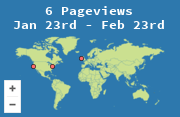South African families are in crisis according to a recent report released by the South African Institute of Race Relations. The report “The First Steps to Healing the South African Family”, documents the extent of family breakdown in South Africa and the effect this is having on children and the youth.
Some of the statistics that can be found in the report are:
- Of the 9.1 million double orphans in Sub-Saharan Africa in 2005, around 5.2 million (almost 60%) had lost at least one of their parents to AIDS
- South Africa has 859 000 double orphans (children who have lost both parents) (2008 figures)
- South Africa has 2 468 000 paternal orphans (2008 figures)
- South Africa has 624 000 maternal orphans (2008 figures)
- 3.95 million children in South Africa had lost 1 or both parents by 2008 which means an increase of about one third since 2002
- Almost half of all orphans and two-thirds of double orphans in South Africa were between the ages of 12 and 17 years
- 481 994 double orphans were enrolled in ordinary schools in South Africa in 2008
- 1 661 275 children whose mother or father had died were enrolled in ordinary schools in South Africa in 2008
- Medical Research Council’s estimates in 2002 were that in 2015 some 5 700 000 children in Southern Africa would have lost one or both parents to AIDS
To more go to TimesLive’s article by Clicking Here!
To download the full report Click Here!
Filed under: Edu News (Africa), Edu News (South Africa), Schools, Statistics | Tagged: AIDS, disintegration, enrollments, family, HIV, mortality rates, orphans, parents, report, SAIRR, schooling, South Africa, South African Institute of Race Relations, Southern Africa | Comments Off on The South African family is in crisis according to an SAIRR Report








